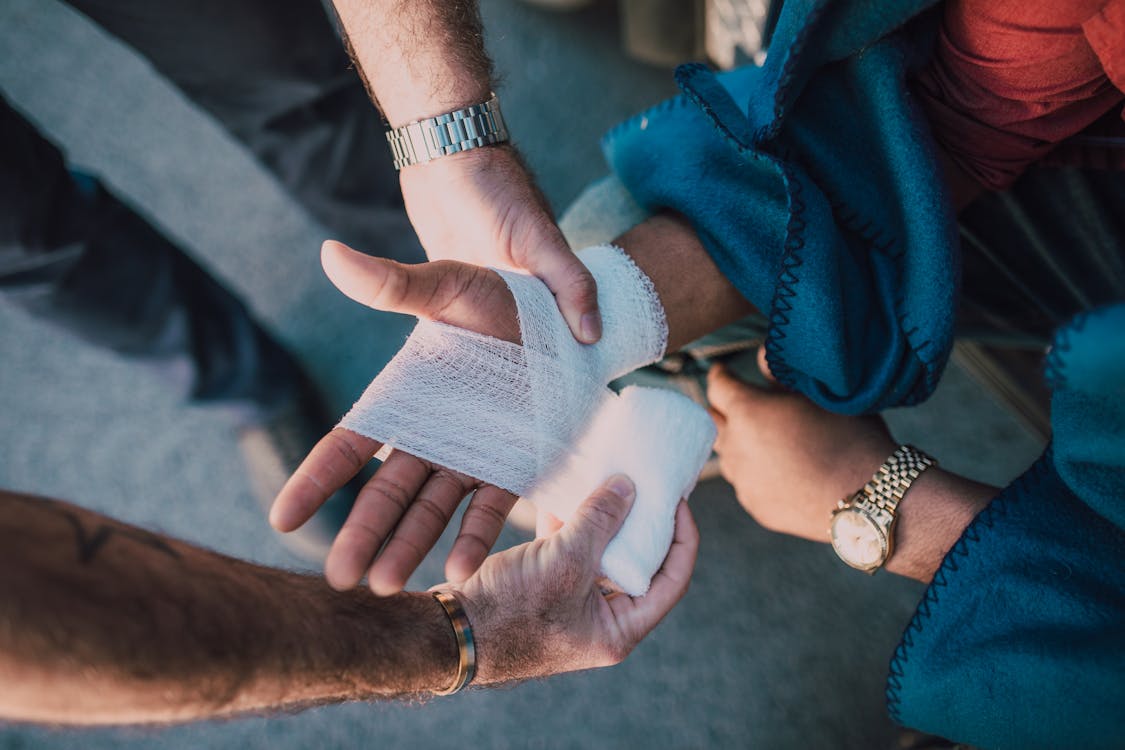Emergencies can strike at any moment, catching us off guard. Whether it’s a natural disaster, a medical emergency, or an unexpected accident, knowing how to respond can make a significant difference in ensuring your safety and the safety of those around you. While it’s impossible to predict when an emergency will occur, being prepared is within your control.
In this blog, we’ll provide practical, easy-to-follow emergency safety tips to help you navigate crisis situations with confidence and composure. From staying calm to planning ahead, these tips will equip you with the knowledge to act swiftly and effectively when it matters most.
Imagine this: You’re at work, and the fire alarm goes off. Do you know the nearest exit? Or picture yourself at home when someone suddenly collapses. Can you perform CPR or call for help effectively?
By taking the time to prepare and familiarise yourself with essential emergency safety tips, you can turn potential chaos into manageable situations. Let’s dive into how you can better prepare for handling emergencies, ensuring you’re ready to protect yourself and others in times of crisis.
Stay Calm and Assess the Situation

One of the most important emergency tips is to stay calm in a crisis situation. Panic can cloud your judgement and lead to mistakes. Take a few deep breaths to help steady your nerves.
Once you’ve calmed down, assess the situation. Identify any immediate dangers and think about the best course of action. Staying calm and thinking clearly is your first step in effectively handling emergencies.
Ensure Safety First
Your safety and the safety of others should always be your top priority in any emergency situation. Quickly identify any immediate dangers, such as fire, electrical hazards, or unstable structures. Move to a safe location if necessary. If you’re indoors, turn off electrical appliances to prevent further hazards.
Knowing basic safety measures, like finding shelter or using fire extinguishers, can be crucial in these moments. Following these emergency preparedness steps can significantly enhance your ability to handle crisis situations.
Call for Help
Don’t hesitate to contact emergency services. Calling for help promptly can save lives. When you call, provide clear and concise information about the situation. Mention your location, the nature of the emergency, and any injuries.
Having a list of essential emergency numbers, such as the police, fire department, and ambulance services, readily available can be a lifesaver. Ensure these numbers are easily accessible on your phone and at home. 999 and 112 is the national emergency response service in the UK.
Provide First Aid if Necessary
While waiting for professional help to arrive, providing first aid can make a significant difference. Familiarise yourself with basic first aid steps for common injuries like cuts, burns, and fractures. For example, if someone is bleeding, apply pressure to the wound to stop the bleeding. If someone is unconscious but breathing, place them in the recovery position.
Tip: Enrol in an emergency first aid course to gain hands-on experience. These courses provide practical knowledge, making you more confident and capable during a crisis.
Having a well-stocked first aid kit and knowing how to use it can be invaluable during an emergency. This is an essential part of your emergency preparedness plan.
Communicate Clearly
Clear communication is vital during crisis situations. Stay calm and provide concise information to those around you. This helps prevent misunderstandings and ensures everyone knows what to do. Keep others informed about your location and condition.
If you’re in a group, make sure everyone understands the plan and knows their roles. Effective communication can make a chaotic situation more manageable and is a key element in handling emergencies.
Follow Emergency Procedures
Knowing and following established emergency procedures can save lives. Familiarise yourself with workplace or school emergency plans. These plans often include evacuation routes, assembly points, and specific actions to take during different types of emergencies.
Regularly participating in drills and practising these procedures can help you stay prepared and respond quickly when an actual emergency occurs. This proactive approach is crucial for effective emergency preparedness.
Stay Informed
In a crisis situation, staying informed with reliable information is crucial. Use trusted news sources, social media, and emergency apps to get updates. Be cautious of rumours and stick to verified information.
Knowing what’s happening can help you make informed decisions and avoid unnecessary risks. Keep a battery-powered radio handy in case of power outages, ensuring you stay updated even without electricity. Staying informed is a vital part of your emergency safety tips.
Tip: Sign up for local emergency alerts to receive timely information directly to your phone.
Plan Ahead
Having an emergency plan in place is essential. Create a personal or family emergency preparedness plan that includes meeting points, emergency contacts, and a checklist of essential items. Review and update your plan regularly.
Make sure everyone in your household knows the plan and understands their role. Being prepared in advance can significantly reduce the chaos and stress during an actual emergency. Planning ahead is one of the most important emergency safety tips.
Mental Health Considerations
Emergencies can take a toll on your mental health. It’s important to acknowledge the emotional impact of a crisis situation. Manage stress and anxiety by talking to friends, family, or professionals. Taking care of your mental health is just as important as your physical safety.
Simple activities like deep breathing, meditation, or even talking about your experiences can help alleviate stress. Remember, seeking support is a sign of strength, not weakness.
Conclusion
Emergencies can be daunting, but being prepared can make all the difference. By following these emergency safety tips, you can handle crisis situations more effectively and ensure the safety of yourself and those around you.
For more detailed information and resources on staying safe, visit our Safety Hub. The Safety Hub offers comprehensive safety tips and guides for day-to-day activities and events, helping you be prepared for any situation. Being proactive and informed is the key to successfully handling emergencies and maintaining peace of mind.




